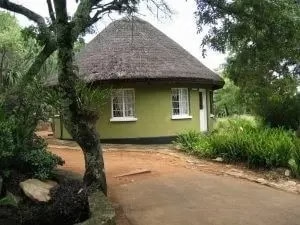Why I Love My Zimbabwean Accent
Did you know Zimbabwe has 16 official languages? Among them, English is one of the most widely spoken. But here’s the fascinating part—our Zimbabwean English accent carries something much deeper than just words. It reflects our history, our roots, and our cultural identity.
Have you ever wondered why people around the world speak English with different accents? The same happens right here in Zimbabwe, not just with English, but with our own languages too.
Dialects and Identity

Within Zimbabwe, the Shona language alone has multiple dialects. And interestingly, the dialect you grow up speaking often shapes how you’ll pronounce English words. That’s when I realized something powerful:
Accents aren’t just about sound—they’re about who we are.
Each Shona dialect connects to a specific community, region, or even village. They serve as cultural fingerprints, unique to every group. When we speak English with our Zimbabwean accent, we’re carrying pieces of this cultural history with us.
What Exactly Is a Dialect?
The Cambridge Dictionary defines a dialect as “a form of a language spoken in a particular part of a country, containing unique words, grammar, and expressions.”
Dialects can be shaped by region, community, or even social setting. For instance, the way you speak at home may differ slightly from the way you’d speak in school or at work.
In Zimbabwe, dialects give us a sense of belonging. They make us who we are. And when it comes to Shona, these dialects are rich and diverse:
- Korekore (Northern Shona) – includes groups like Tavara, Budya, and Pfungwe
- Karanga – such as Duma, Jena, and Nyubi
- Ndau – including Garwe and Danda
- Zezuru – groups like Shawasha, Hera, and Njanja
- Manyika – such as Hungwe, Nyatwe, and Bvumba
Each dialect carries its own history, stories, and way of shaping language.
How was the Shona language standardised and who engineered it? To find out Check Out Here,
Zimbabwean English – A Living Accent
Our version of English has its roots in British English, but it’s been shaped by Shona, Ndebele, and other local languages. That’s what makes it ours.
In high school, I remember how classmates who spoke “eloquent English” were teased as the “nose brigade” because they spoke “through the nose.” Back then, people didn’t celebrate Zimbabwean English. Yet now I see that it’s something to be proud of—it’s our dialect of English, just like Australians or Americans have theirs.
And here’s the irony: someone who sounds “polished” in Zimbabwe might still sound different in the UK, where regional accents vary widely. That means there’s no single “perfect” English—only versions shaped by history and culture.
Celebrating Our Voice
Research shows that most Zimbabweans who speak English carry influences from Shona (Mlambo, 2009). This explains why our words might sound different to outsiders. But instead of shying away from it, we should embrace it.
Languages and accents evolve. What matters most is that they reflect our identity. As Zimbabwe’s curriculum begins to include more indigenous literature and languages, we’re slowly returning to a place where our culture and heritage are valued.
The Ndau dialect has even become one of Zimbabwe’s official languages, showing positive progress in reclaiming our linguistic richness.
Final Thoughts
Accents are not flaws—they’re treasures. They tell stories of where we come from and who we are.
So, whether you speak English with a Zimbabwean twist, or switch between dialects at home, remember this:
Your voice carries the weight of your heritage. That’s something worth celebrating.
Let’s stop frowning upon the Zimbabwean English accent. Instead, let’s wear it proudly as part of our cultural identity.
For more vivid and engaging Shona tales watch these videos and subscribe.
References
| Aeneas S Chigwedere, (1989) Article: How We Became Shona, Heritage of Zimbabwe, 107-115. |
| Mlambo, (2009) Paper: A Survey of the Language Situation in Zimbabwe, English Today, Volume 25, Issue 2, Cambridge University Press, pp 18-24. |
| Thondhlana J, (2002) Paper: Using Indigenous Languages for Teaching and Learning in Zimbabwe, ERIC. |
| The Herald Newspaper, Beaven Tapureta, Zimbabwe: Time to Stop the ‘Standard Shona’ Phenomenon, 22 June 206. |

No responses yet